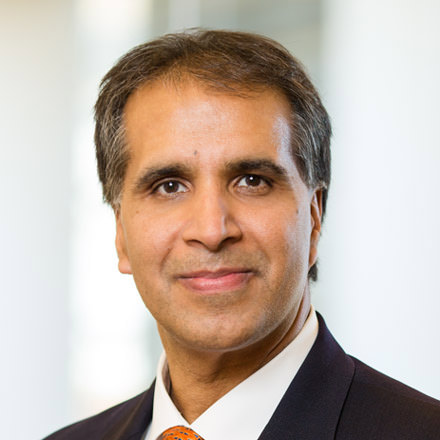UC Davis law professor Vikram David Amar discusses a recent decision by the U.S. Supreme Court that has received little attention despite its significance—Williams-Yulee v. Florida Bar. In that case, a 5-4 majority of the Court upheld a Florida law that forbids candidates running in contested elections for judicial office from personally soliciting campaign contributions. Amar argues that the ruling provides important insights about First Amendment doctrine and also about the membership of the Roberts Court.
UC Davis law professors Vikram David Amar and Alan Brownstein continue their discussion of state religious freedom restoration acts (RFRAs). Amar and Brownstein discuss the original purpose of state RFRAs, the pros and cons of enacting a general religious liberty statute as opposed to granting accommodations on a case-by-case basis, and the best way for states to move forward in light of these considerations.
UC Davis law professors Vikram David Amar and Alan Brownstein discuss state religious freedom restoration acts (RFRAs). In this first of a two-part series of columns, Amar and Brownstein argue that whether a state RFRA should apply in private litigation should be determined on a case-by-case basis.
UC Davis law professor Vikram David Amar comments on the case currently before the U.S. Supreme Court regarding Texas’s rejection of a custom license plate application that included the Confederate flag. Specifically, Amar considers three First Amendment issues raised during the recent oral argument for that case.
UC Davis law professors Vikram David Amar and Alan E. Brownstein discuss the so-called “Sodomite Suppression Act”—a recently proposed California initiative. Amar and Brownstein argue that despite the clear illegality and immorality of the proposed initiative, many of the suggestions that the attorney who proposed it be punished or that the initiative process be altered to prevent these types of initiatives are themselves unconstitutional in some cases, and at best ill-advised in other cases.
U.C. Davis law professor Vikram David Amar comments on the recent oral argument in the Arizona Independent Redistricting case before the U.S. Supreme Court. In particular, he points out the lack of attention to the question of standing and Justice Anthony Kennedy’s overly (and erroneously) simplistic view of U.S. history.
U.C. Davis law professor Vikram David Amar and guest columnist and dean of UC Davis law school Kevin R. Johnson offer five ways in which law students might better use the U.S. News law school rankings when they are released.
U.C. Davis law professor Vikram David Amar discusses the current controversy in Alabama over whether state court judges must issue same-sex marriage licenses pursuant to an order to a federal district judge sitting in that state.
U.C. Davis law professor Vikram David Amar continues his discussion of the Arizona redistricting commission case currently before the U.S. Supreme Court. Amar considers both the question of standing and the actual merits of the issue presented.
U.C. Davis law professor Vikram David Amar evaluates the merits of the arguments of the Arizona legislature in its Supreme Court challenge to the Arizona Independent Redistricting Commission.
UC Davis law professor Vikram David Amar continues his discussion of the low 2014 bar pass rates in California and throughout the country.
U.C. Davis law professors Vikram David Amar and Alan Brownstein reflect on the five most significant constitutional developments of 2014.
U.C. Davis law professor Vikram David Amar continues his discussion on how federalism cuts against the challengers to the Obamacare statute in King v. Burwell. In this second of a two-part series, Amar addresses some counterarguments to his thesis that federalism principles bolster the federal government’s position in that case.
U.C. Davis Law professor Vikram David Amar explains how the U.S. Supreme Court’s 2012 decision in National Federation of Independent Business v. Sebelius—upholding Obamacare as a proper exercise of Congress’s tax powers and striking down a significant expansion of Medicaid—weakens the case of subsequent challengers to Obamacare in King v. Burwell.
U.C. Davis law professor Vikram David Amar comments on the lower bar pass rate for the July 2014 exam as compared to prior years. Amar discusses the response by the exam’s creators and how educators, practitioners, and others can use the incident to explore broader questions regarding the licensure requirements for the practice of law.
U.C. Davis law professor Vikram David Amar discusses how Arizona’s Proposition 122 addresses not only federalism concerns but also serves as an intra-state reorganization of power.
UC Davis law professor Vikram David Amar discusses a case the U.S. Supreme Court will decide this Term regarding the so-called nondelegation doctrine. Amar argues that the Court should uphold the delegation of power in this case and that related concerns about conflicts of interest and anti-competition that may arise from some delegations to market actors are better handled under a due process analysis.
U.C. Davis law professors Vikram David Amar and Alan E. Brownstein discuss a case the U.S. Supreme Court that will be argued in the coming months, which presents the issue how courts should define “true threats” that fall outside First Amendment protection and thus are subject to punishment.
U.C. Davis School of Law professor Vikram David Amar describes a recent incursion by the U.S. Court of Appeals for the Ninth Circuit into California’s direct democracy system. Amar explains the U.S. Supreme Court precedents that led the Ninth Circuit to its conclusion, and he calls upon the Court to cut back or overrule its prior erroneous decisions to avoid future injuries to state direct democracy systems.
UC Davis law professor Vikram David Amar discusses a recent decision by the California Supreme Court temporarily blocking an “advisory” measure from appearing on the ballot. Focusing on the opinion by Justice Goodwin Liu, Amar describes three main weaknesses in the rationale behind disallowing the legislature from placing the advisory question (or any advisory question) on the ballot.




